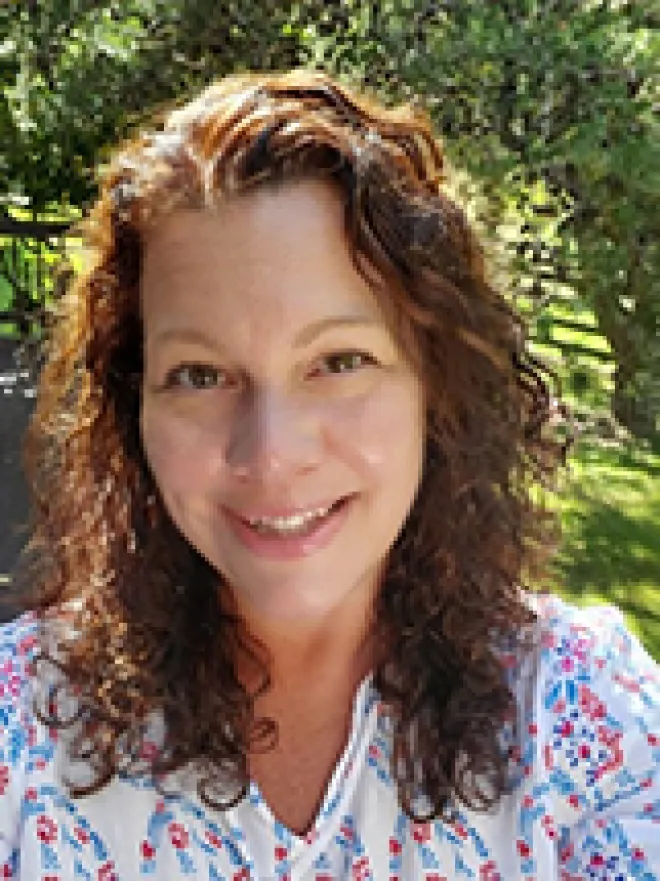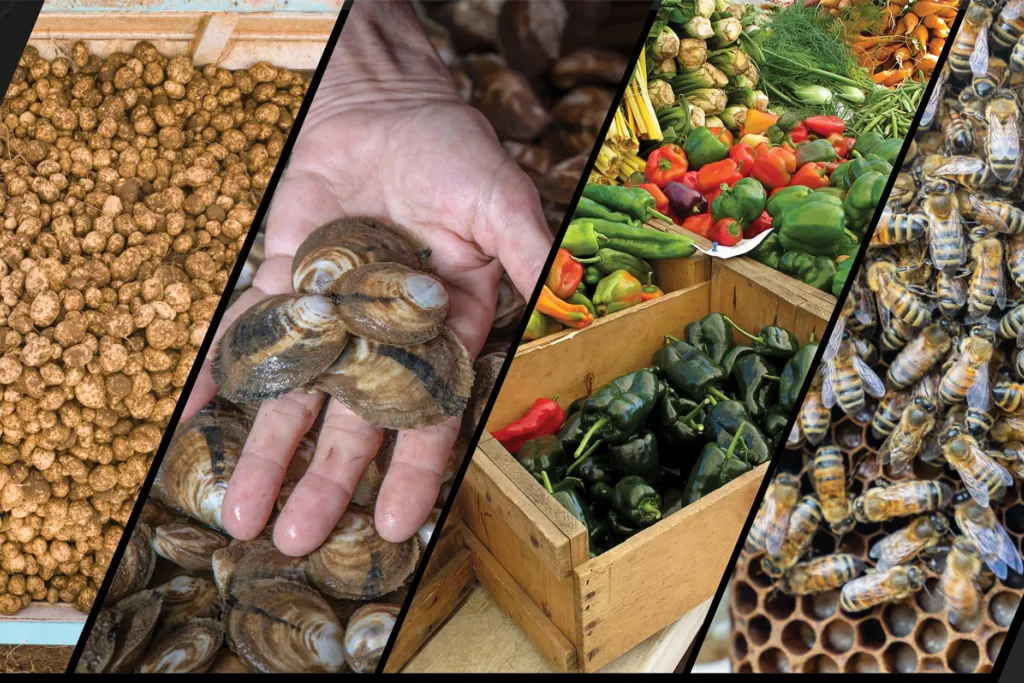This month USDA’s National Institute of Food and Agriculture (NIFA) is highlighting NIFA-funded researchers who are creating more and better markets for producers and consumers.
Get know Dr. Kimberly Morgan, associate professor at the University of Florida (UF), and her work in the following conversation.

Tell us your journey and how your interest in agriculture developed.
I am third generation off the Indiana farmstead that my grandfather sold with great joy (he never did agree with me that pleasure horses were a good use of time or money). After starting at UF full of plans to pursue a career in veterinary medicine, I had to come to terms with the reality that physics was just not something I could wrap my head around. Instead, I found my path in a course called “Farm Firm Management” taught by Dr. John Holt. Here, I surprised both of us with my acumen at finding solutions to improve business decision-making based on economic principles and analytical techniques that he introduced to us in his course. The best part of working in the food and resource economics discipline is that everyone who eats and/or enjoys natural resources benefits from our work as a partner. Seeing the eyes of my students and clients light up when I show them how economic models give us the power to make the math dance and tell the story of why markets behave the way they do is how I continue to pass the flame of the knowledge shared with me by my mentors with the next generations of difference-makers.
Describe your involvement with NIFA and your role.
NIFA is focused on solving wicked problems facing all of us as a society of producers and consumers of food and resources. As such, all my NIFA-supported projects are built around the skills and efforts of my teammates and the stakeholders who participate in, contribute to, and benefit from the research and education. I have served on several NIFA grant panels, and while these demand a lot of effort and time, these hours are rewarding for two reasons. First, reviewing and discussing each proposal with my colleagues helps me to see what sort of problems top-flight researchers are trying to solve. Second, I learned how to improve my own grant submissions to address the Request for Application details, to build strong teams integrated alongside students and industry, and to think through the expected economic impacts of the work.
Could you catch us up on one of your NIFA-funded projects? What is the goal of your project and what impact do you hope it has on your institution and trainees?
I was privileged to be a part of the Virginia Beginning Farmer and Rancher Development Program projects in 2014-2019. I admit these are my most favorite NIFA-funded projects because they are built on the inspirations and dreams of folks new to farming or, farmers willing to take on a new enterprise, and how my undergraduate students formed an integral part of our project by finding new ways to connect growers and consumers and their communities. In this program, so many refreshingly unexpected positive outcomes happened, including award-winning team efforts in reaching underserved audiences and using new technologies to reduce the costs of connecting buyers to sellers, to name just two things. As a researcher, I found great joy in being art of the co-learning process that happened naturally because of putting young people and experienced entrepreneurs in a room, giving them economic tools to use, then watching them think up better ways of doing things to benefit all of us in the food system. If universities continue to find ways to show students that we offer knowledge in the form of hands-on learning by doing, we are generating added value to stakeholders, taxpayers, citizens in our states, and the global food system, now, and in the future. NIFA funding is the number one key to achieving these multiple, integrated, long-term impacts and outcomes.
How has NIFA funding shaped your professional development as a scientist?
As my primary appointment centers around extension work with farmers, farm input providers, and supporting agencies such as the Cooperative Extension Service and State Departments of Agriculture, I have always been surrounded by entrepreneurial thinkers and out-of-the-box solution creators. When I first earned my Ph.D., I remember worrying about how I would find interesting challenges to solve and brilliant hard-working people to work with, and I found all this and more in the pursuit of NIFA funding and in service as a grant panelist. The global food supply chain is rife with challenges and opportunities, and by focusing my research on successful grant proposals that were based on questions from the field, and selected by a panel of my peers, I knew my team and future students would be making a difference in completing NIFA-backed projects. Professional advancement hinges on identifying real-world problems and connecting with people who have “skin in the game,” and this network of colleagues is the building block of success in my scientific career as we work together to find which alternative to pursue relative to the next best.
What advice do you have for current students who may be interested in pursuing a similar career path?
My answer to this question seems to change as I grow older and wiser, but for today, I would say to chase your dreams and find a career you are passionate about, and you will rarely have a boring day in the office. Academics are, by definition, life-long learners, so there are no age limits or time constraints to investing in graduate education – I did not earn my Ph.D. until after my 37th birthday while working two jobs and raising three young kids. And if you experience obstacles, find ways around them. For example, my undergraduate major was not in economics, nor was my GPA any place close to a 3.5, yet my work in the classroom impressed one or two professors enough to take a chance on me and let me in to the Master of Science degree program. As my mentor reminds me, to play the game, you must take a seat at the table. So, grab a chair and pull it up – we could use all the minds we can get!
Top photo: Far left image of a truck full of potatoes, left middle image of hand holding oysters. Middle right image of various fresh peppers at a farmers market and far right image of honey bees in a hive. Photos courtesy of Adobe Stock.

